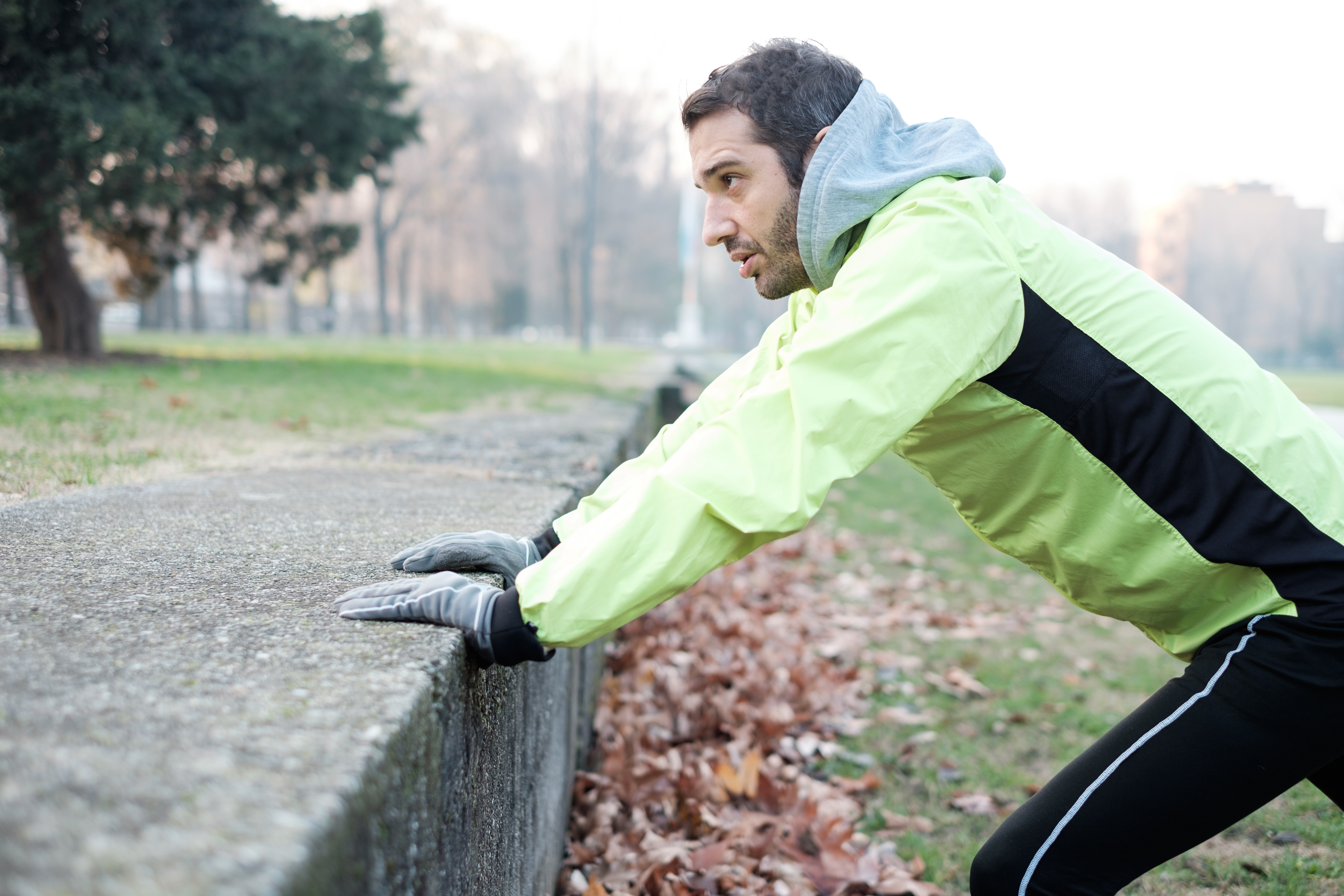
Summer seems like a distant memory now, doesn’t it? The wind and rain has returned, and so has that oh-so-familiar murky grey sky. But there’s no need to throw your fitness plan to the back of the wardrobe along with your beach towel. No, we’re here to help.
Below are some of the best expert tips to follow if you’re keen to keep yourself feeling fit and healthy over the winter months. With a combination of a relatively good diet and regular exercise plan, there’s no reason why you shouldn’t be able to stay race-ready.
Winter dos
Interval training
Alix Woods, Nutritionist at Quest Nutra Pharma, says: “Do 30 minutes of interval training 3-4 times a week. If you’re struggling to make it to the gym or you’re just too cold to leave your heated house, there are numerous fitness apps available to download that provide you with an interval workout. Interval training allows the body to burn more calories over a shorter time than steady cardiovascular exercise, such as longer distance running. This is due to the alternate periods of high intensity training and low intensity recovery times.”
Add protein
Leading UK Nutritionist and author of Fat Around The Middle, Dr Marilyn Glenville, explains: “Protein slows down the rate that stomach processes food and delays the passage of the carbohydrates with it. As soon as you add a protein – be it animal or vegetable – to a carbohydrate, you change it into a slower releasing carbohydrate, that helps to balance your sugar levels.”
Switch white for wholemeal
Marilyn claims: “Swap to whole grain alternatives that release energy slowly. The carbohydrates in wholemeal bread are broken down slowly over several hours and so do not give any sudden flooding of sugars into the bloodstream. Also, this gradual release helps you to feel full for longer, suppressing your appetite and stopping you craving sweet foods because you are not on the blood sugar rollercoaster.”
Eat every three hours
“Try to keep your blood sugar levels and energy levels stable by eating regularly. Eat breakfast, lunch and dinner plus a snack mid morning and one mid afternoon, with no longer than three hours between. I’d also suggest that you should try not to eat carbohydrates after 6pm,” suggests Marilyn.
Spices
Martina Della Vedova, Nutritionist at Natures Plus, says: “Spices can help boost your metabolism so your summer efforts are prolonged. By adding cinnamon and ginger to hot beverages and foods like porridge, not only gives a warming flavour but also supports a healthy blood sugar level..”
Sleep
Martina adds: “Sleep is a major factor for weight gain. Not sleeping enough or having bad quality sleep pushes our nervous system into an alarming state and as a response the body will slow the metabolism down and shifting pounds can become very difficult.” Try Nature’s Plus KalmAssure Magnesium Powder, taken in the evening or before bed, to provide your body with healthy magnesium levels, which can assist in, better sleeping patterns.
Winter don’ts
Fad diets
“Stop dieting and don’t count calories, otherwise your body will think there’s a famine and will raise your stress levels, which can contribute to fat storage,” suggests Marilyn.
Sugar
Nutritionist, Cassandra Barns, says: “Sugar is quickly broken down into glucose in our blood – the type of sugar that converts directly to energy. Our blood glucose level goes very high at this point, and this is when we feel energised, but because high levels of glucose in our blood are harmful to the body, it releases insulin, which then quickly removes the glucose and stores it as glycogen or fat. This can then cause us to put on weight.”
Skipping breakfast
“If you miss breakfast your body immediately registers famine and hangs on tight to your ample stores of fat,” explains Marilyn. “Make sure you choose healthy breakfast options such as eggs on wholemeal bread with avocado or rolled oats with fresh berries.”
Eating on the run
Marilyn states: “It gives your body the message that time is scarce, you are under pressure and stressed. Furthermore, your digestive system will be less efficient. Make a point of sitting down and eating your food as calmly as possible.”
Comfort food
“Winter is the season in which comfort foods are more present on our tables. Remember to consume a varied and colourful diet and choose foods rich in fibres such as sweet potatoes, turnips, carrots, roots, legumes and pulses. These foods can satisfy a sweet tooth, comfort during cold days and prevent the scales shifting,” suggests Martina.
Caffeine
Alix claims: “As caffeine dehydrates, it can rob the body of essential minerals and cause excess glucose, which contributes to fat storage. Cutting out caffeine also avoids that immediate but short-lived rush of energy, which helps to reduce the chances of the infamous ‘fight or flight’ response, allowing you to keep a steadier energy level for the rest of the day. If you really need your caffeine fix, have one midmorning without milk or with a dairy free alternative like oat, almond or coconut milk.”





